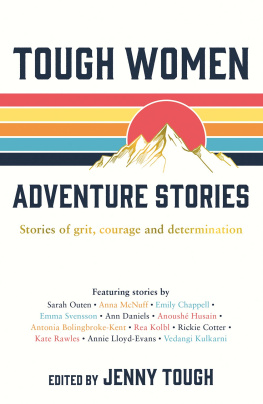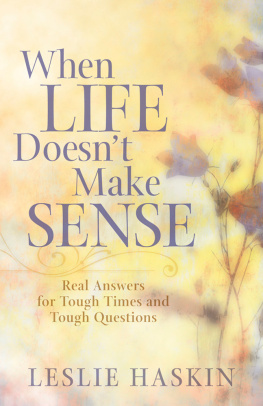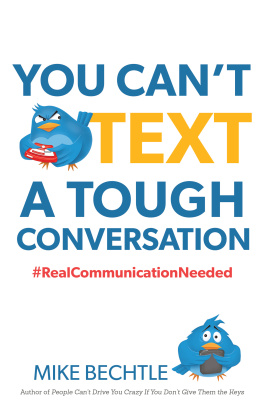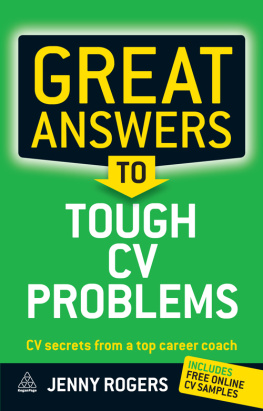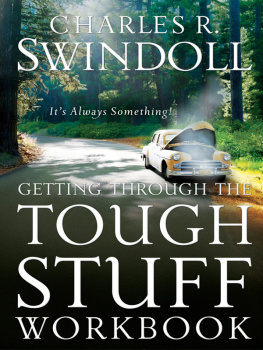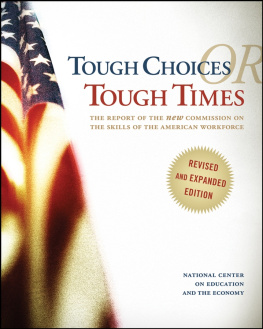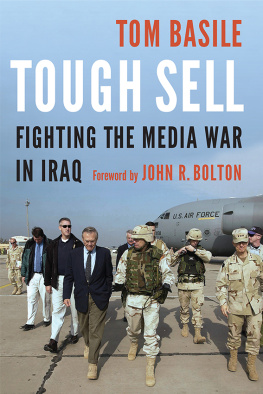TOUGH WOMEN ADVENTURE STORIES
All individual stories The Authors, 2020
Mountain image Kano07/Shutterstock.com
All rights reserved.
No part of this book may be reproduced by any means, nor transmitted, nor translated into a machine language, without the written permission of the publishers.
Jenny Tough has asserted her right to be identified as the editor of this work in accordance with sections 77 and 78 of the Copyright, Designs and Patents Act 1988.
Condition of Sale
This book is sold subject to the condition that it shall not, by way of trade or otherwise, be lent, resold, hired out or otherwise circulated in any form of binding or cover other than that in which it is published and without a similar condition including this condition being imposed on the subsequent purchaser.
An Hachette UK Company
www.hachette.co.uk
Summersdale Publishers Ltd
Part of Octopus Publishing Group Limited
Carmelite House
50 Victoria Embankment
LONDON
EC4Y 0DZ
UK
www.summersdale.com
ISBN: 978-1-78783-878-9
Substantial discounts on bulk quantities of Summersdale books are available to corporations, professional associations and other organizations. For details contact general enquiries: telephone: +44 (0) 1243 771107 or email: .
Every effort has been made to trace copyright holders and to obtain their permission for the use of copyrighted material. The publisher apologizes for any errors or omissions and would be grateful if notified of any corrections that should be incorporated in future reprints or editions of this book.
You're tougher than you think
CONTENTS
Jenny Tough
Alinor le Gouvello
Ann Daniels
Anna McNuff
Annie Lloyd-Evans
Anoush Husain
Antonia Bolingbroke-Kent
Beth French
Carmen Kuntz
Cat Vinton
Emily Chappell
Emma Svensson
Ewa Kalisiewicz
Hannah Maia
Jenn Hill
Julie Anne Christy
Kate Rawles
Misba Khan
Paula Flach
Rea Kolbl
Rickie Cotter
Sarah Outen
Vedangi Kulkarni
FOREWORD
JENNY TOUGH
T he length of time milliseconds that go on for minutes it takes until I hear the dead tree I've just pulled out of the mountainside splash into the river below is all I need to confirm the thought that was previously swirling, and now screaming, inside my head: one mistake, and I'm dead. The tree, now being carried through the impassible gorge by the raging white river, was meant to be my break on the climb. On an otherwise bare, precipitous, scree mountain flank, baking in the hot Kyrgyz summer sun, the small lone tree was the only feature I could rest on. And I really need a rest. Limbs shaking, sweat dripping, and the realization of my current consequences, I have no choice but to push onward and upward. No. Other. Choice.
It was my mistake. I know this. This isn't a mountain accident or an unfortunate turn of events. No, this was all me this time. I took a bad route. Chose a valley without thoroughly studying the contour lines. I followed a goat track usually my only hope of decent footing until I hit some landslides, which I delicately picked my way across. Up here in the Tien Shan, landslides are not out of place, and with the summer almost over, at least the avalanches have mostly settled. I'm not alarmed, and I continue on my course. But with an ominous rumble from above, the landslide I just picked my way over is awash with new boulders. I realize that I am not in a stable area. The boulders are not ankle-breakers; they're femur-breakers not to mention the instant consequences should another landslide kick off while I'm in its path. There's no chance I'm going back that way, no matter what happens.
If I do break a femur, my hope of rescue out here, in the central Tien Shan, is quite limited. This country doesn't even have one single helicopter to send out. I know this, and I'm comfortable with the risk Most of the time. But most of the time I don't make navigational errors like this one. Speeding away from the scary landslides, I turn the corner of the valley, and my heart drops all the way down to my shoes. The valley turns suddenly into a gorge. The slope I'm currently following goes all the way to 90 degrees, the thin goat track literally ending at a cliff edge. There is no way forward, and no way back.
I consider my options. There are really only two: go down into the river on my right, and swim through the gorge, or go up and over the mountain on my left, where I know it's a little gentler on the other side. I tiptoe down to the water's edge: it's deep, but moving fast, and not so deep that I wouldn't crack my skull on a protruding rock if I tried to float down it. I look up at the mountain: it's steep. Super-steep. I spend no more than a few minutes making my decision: death is slightly less likely on the mountain than the white water. I pull my GPS safety device out and put it around my neck, prepared if I need to drop my backpack at any point. I take a deep breath, and place my hands on the rock in front of me. Don't look down.
I have no idea, to this day, how long that climb took. It felt like 2 hours at least, but it's likely that it was less. I don't know how long it took, how high it was, or if there had been another option. I refuse to look at my gpx track for the day. I don't want to know. What I do know, is what my mind went through. They say your life flashes before your eyes, but it was my future that I saw instead. I realized all the things I wanted to do, clear visions of goals I wanted to accomplish, places I wanted to see, and more memories to be made with people I love. I focused on the placement of each foot and hand to ensure I had a chance of still getting to do them. I promised myself that if I survived this climb, I would call the expedition off. I would go home. They were right I can't do this.
Three weeks earlier, I had landed in Bishkek, the capital of Kyrgyzstan, excited and ready to start my expedition: a solo and unsupported run across the central Tien Shan mountain range, which basically spanned the entire country. In all of my (considerable) research in preparing, I couldn't find any recording of anyone who had crossed this mountain range on foot, whether man or woman, walking or running. I had a chance at putting a world first to my name. It hadn't been the reason I decided to do it it was already happening before I learned this but my inner narcissist (who is usually fairly quiet) couldn't believe the luck.
The most intriguing bit of doing something that's never been done before is that there is no guidebook: you have to play Explorer and figure everything out yourself. You can't google anything. You have to find your way in the old-fashioned way, although I did rely heavily on satellite images of the mountains to design my route. I can't imagine how the explorers of old did without.
I spent more hours than I ever have on any project designing my expedition. I studied what few maps I could find, scoured the internet and any books that had ever touched Kyrgyzstan (I can tell you a lot about breeding the Kyrgyz horse, to give you an indication of how well scraped that barrel is), combed through any knowledge I could glean from anyone. There wasn't much. I made lists and went on training weekends in the Highlands and then made new lists. I was the definition of a good student. When I landed in Bishkek, I felt good. I knew I had done everything possible to make this work. Now all I had to do was buy some gas canisters for my stove (the only thing I didn't fly with), head to the eastern edge of the country, and run a thousand kilometres.




